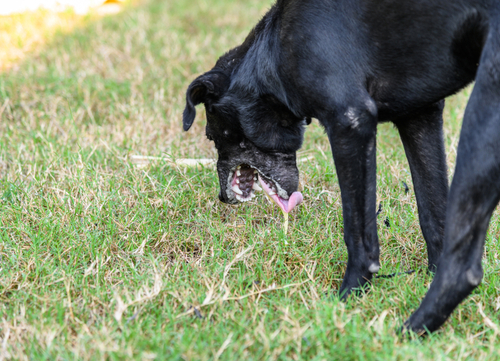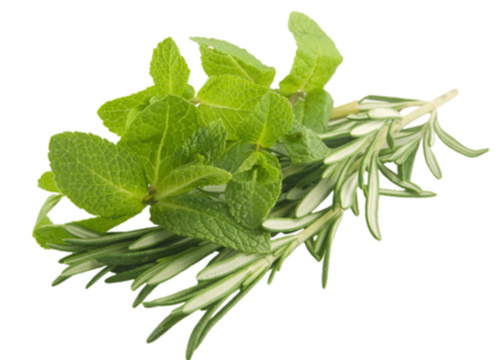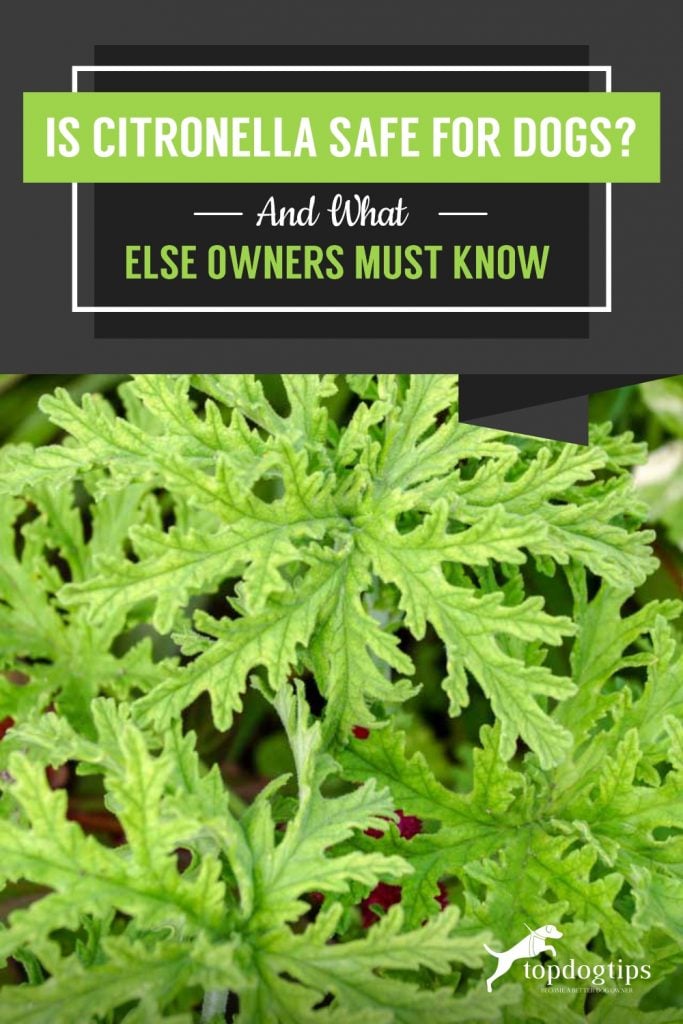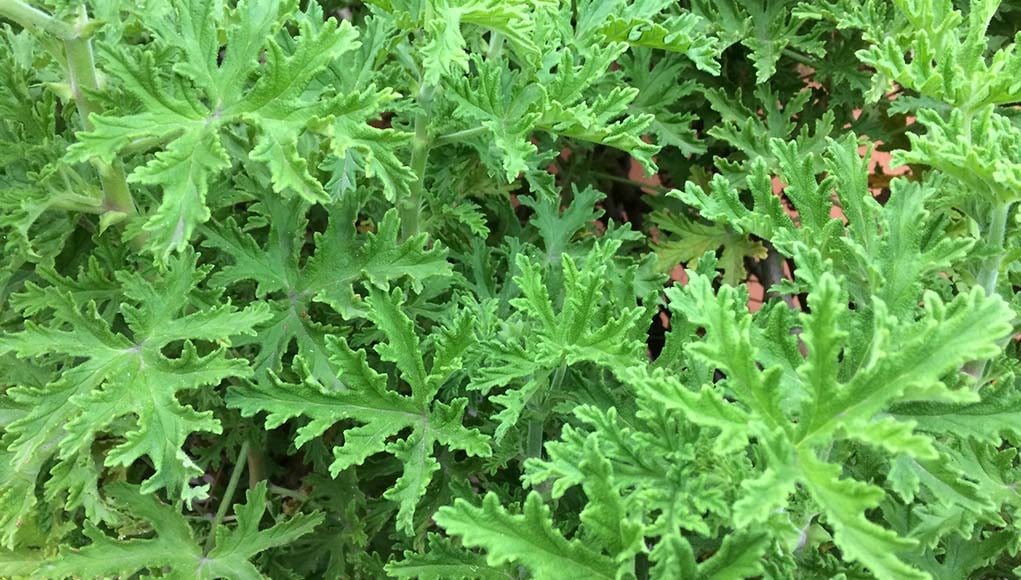If you live in an area prone to mosquitoes, you know what a nuisance they can be. But mosquitos can be more than just annoying; they can be harmful to your health and even deadly, especially to pets. Without taking a preventative medication, your dog can get diseases like heartworm and West Nile virus from those mosquitos. But what if you forget to give a dose of your preventative or give it a couple of days late? In those situations, your dog will need extra protection. And if you’re spending any time outdoors with your dog, you’ll also need something to keep mosquitos at bay — preferably something natural. Citronella has long been considered a natural mosquito repellant, but just because it’s natural doesn’t mean it is safe. In fact, citronella can be toxic to pets.
If you typically rely on citronella to safeguard your family from mosquitos, you can still use it responsibly, but there are things you should know in order to keep your dog safe. You may also want to consider some natural alternatives to citronella. Here’s what you should know about keeping your dog safe around citronella and ways to get rid of the bloodsuckers altogether.

What Is Citronella?
Citronella comes from plants called citronella geraniums, which are popular patio plants. They tend to grow up to 3 feet tall, with tiny purple flowers. When the leaves of the plants are crushed, it creates an essential oil that gives off that typical citronella scent that is popular in pesticides.
The tricky thing about citronella plants and keeping your dog from them is that they are difficult to identify. If you think you’re buying a citronella plant, you can’t always be certain that’s what it truly is. Some are marked as citronella plants, meaning you should definitely keep your pets away, yet they may only smell like citronella and don’t contain any of the essential oil. Those plants might actually be “citronella-scented” geraniums. Without the essential oil that deters mosquitos, all you’re getting from it is the citronella scent. What they do have, however, is linalool and geraniol — both of which can cause distress to a dog’s gastrointestinal system or even be fatal if ingested.
Real citronella plants look more like grass in appearance — not fern-like leaves. However, that introduces another copycat plant: lemongrass. Both citronella and lemongrass smell similar, but only real citronella plants have oil with mosquito-repelling properties. Lemongrass is also bad for dogs, but not as toxic as citronella.

Effects of Citronella on Dogs
There are different ways dogs can get sick from citronella. First, they can ingest it. And it isn’t just eating the plant you have to worry about; it’s candles. Certain dogs tend to eat anything that smells interesting or new. And when you find that your citronella candle has been devoured, it should be a cause for alarm. The American Society for the Prevention of Cruelty to Animals (ASPCA) says that eating citronella oil can cause gastrointestinal upset in dogs, such as vomiting or diarrhea. More alarming is the symptoms that occur with large amounts of citronella ingestion, such as muscle weakness, loss of coordination, hypothermia or death.
Additionally, citronella can irritate the skin. So if your dog brushes up against or is exposed to a citronella plant, they could get a rash or skin infection.
Even if your dog isn’t showing symptoms of citronella poisoning, you should still contact your veterinarian if there is any suspicion that your dog has ingested or come into contact with the plant.

Alternatives to Using Citronella
There are alternatives to using citronella as a mosquito repellant. But in order to repel mosquitos, you need to know what attracts them. In general, mosquitos tend to be attracted to scented perfume and soaps. They’re also drawn to dark clothing and a warm body temperature. While you might not be able to do much about the temperature of your body, you can avoid wearing anything scented or dark in color.
The same applies for your dog. Make sure their dog shampoo isn’t strongly scented and that your dog is dry before going out into a mosquito-prone environment. Sometimes mosquitos bite no matter how much you try to keep them from yourself and your dog. This is especially true at dawn and dusk, and right after it rains. In those situations, you’ll need to either keep your dog inside or choose a safe mosquito repellant other than citronella.
You may be tempted to use one of the most powerful types of citronella alternatives, which is DEET. But products with DEET are no safer for your dog than products with citronella. Using DEET can cause neurological problems for your dog, including seizures or even death. If you spray a DEET product on yourself or your clothing, make sure your dog is not nearby and that they don’t lick your skin after you’ve applied it.

Safest Citronella Alternatives
Although there are dangers to using both natural and manufactured mosquito repellants, rest assured that not all of them are dangerous to dogs. There are actually alternatives that are safer for pets, and they’re available at most pet stores. You can even make your own.
Homemade Bug Spray
Many pet owners have found success with making their own mosquito repellant. Here’s what you’ll need:
- A small spray bottle
- Lemon eucalyptus essential oil (15 drops)
- Witch hazel (2 ounces)
After adding essential oil and witch hazel to the spray bottle, simply shake and spray on your dog’s coat, avoiding the eye area.
Mint
Mint is one of the easiest herbs to grow, and mosquitos hate it. Planting it in some pots around your patio or deck will help repel mosquitos so you don’t have to use citronella. Plus, the pots will ensure the mint stays contained without spreading to other areas of your yard.
Rosemary
If you like to cook, having rosemary in your garden is a great idea. It’s not only a flavorful herb for veggies and meats, but it also is part of the mint family, meaning mosquitos don’t like it. It’s a hearty herb too, so you pretty much just have to plant it and let it thrive.
Basil
Basil isn’t just a delicious addition to Italian foods; it’s also toxic to mosquito larvae. If you plant basil near any standing water like ponds, mosquitos will be deterred from laying their eggs there.
Garlic
It’s no secret that garlic can be an acquired taste. Thankfully, mosquitos hate it. Cooking with garlic during your backyard barbecue or planting garlic in your yard can naturally repel mosquitos to keep your dog safe.
It is important to realize that, although citronella has gotten some attention for being toxic to dogs, there are other natural mosquito repellants that can be dangerous. When you have a pet, it is important to be aware of what types of plants you have round your home, and also make sure that any candles or other temptations are kept out of your dog’s reach.
Read Next: How to Make Homemade Bug Spray for Dogs














